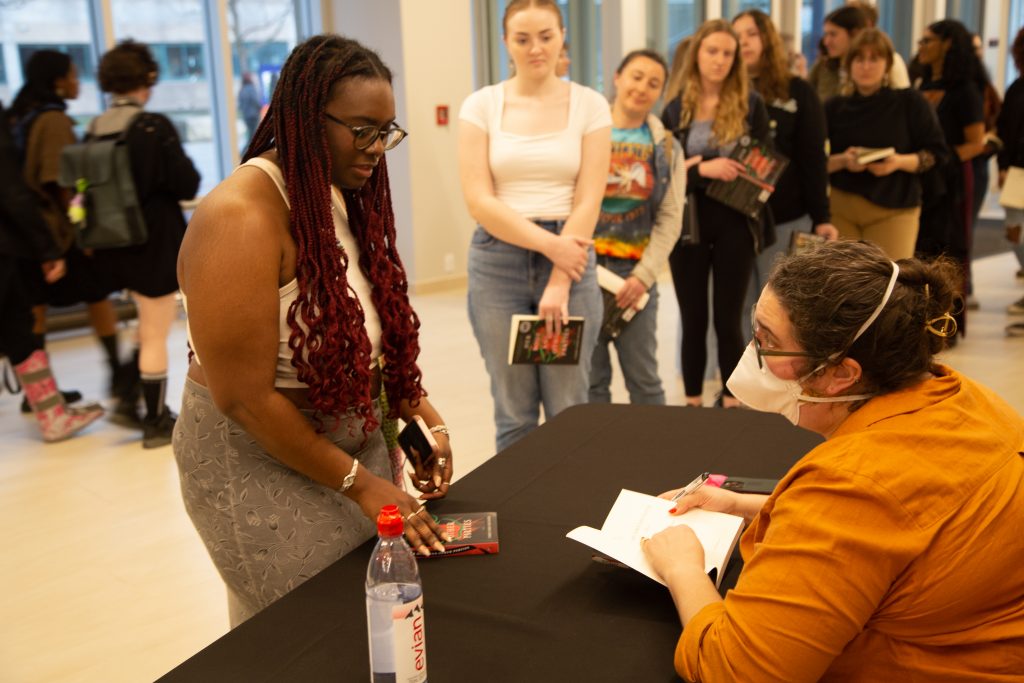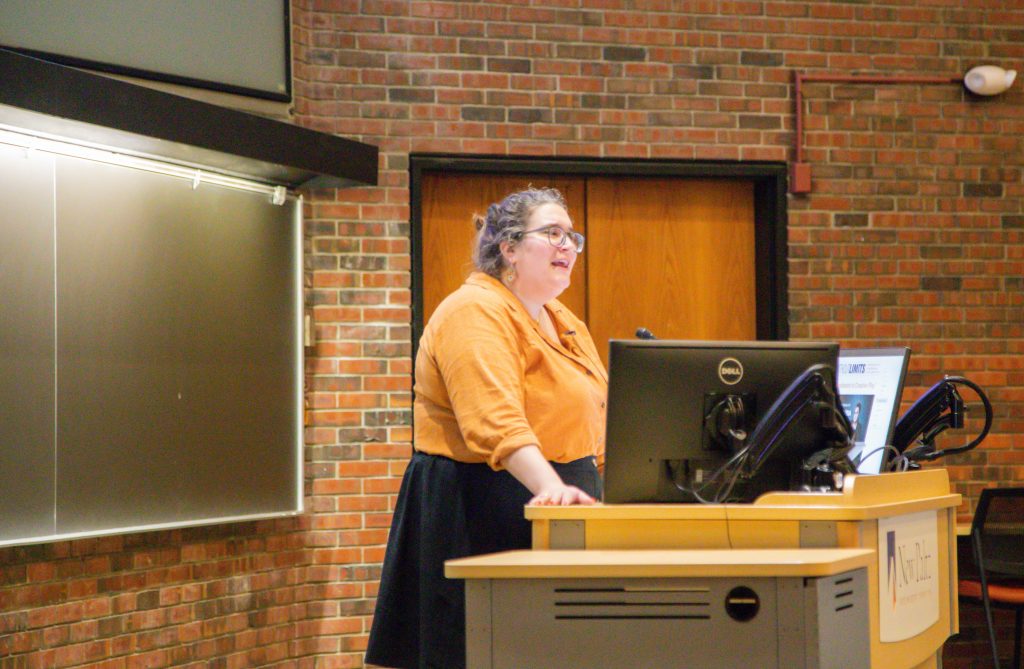In the final event of the 2023 Without Limits series, the College of Liberal Arts & Sciences welcomed bestselling, award-winning author Carmen Maria Machado for a lively, wide-ranging Q&A, titled “Embodiment in Creative Play.” Use this link to watch a full livestream of Machado’s Q&A
As a queer female writer, Machado explores issues of identity and disembodiment in works such as her short story collection, “Her Body and Other Parties,” graphic novel “The Low, Low Woods” and memoir “In the Dream House.”
“Having this sense of disembodiment when you write gives you a space to step outside of yourself and explore your own anxieties, fears, and darkest impulses,” she said.
Machado spoke on the experience of writing at a time when the rise of artificial intelligence (AI) presents existential questions for creative authors. She shared her experience with the technology in her opening remarks to the capacity crowd of students, staff, faculty and campus community members.
“It’s like a game that requires a human being with their knowledge of feeling to play it,” she said. “AI just gives us one more tool to play with, because it knows so much and yet it doesn’t know your emotions and thoughts.”
English Professor Mary Holland served as moderator of the Q&A, highlighting Machado as an example of how liberal arts education can shape students to become critical thinkers, creators, and writers, despite modern challenges.
“With artificial intelligence invading our lives and all of our reading and writing education, it’s never been more important to stop and think about how we can revitalize the work that we all do in the liberal arts and sciences to make positive change in the world,” Holland said. “I cannot think of a better speaker to finish our program this year and talk about these topics.”
Machado can speak to the importance of liberal arts education as a renowned scholar herself, who has held fellowships and residencies in various higher education institutions and nonprofits supporting the arts.
“The study of humanities is what makes us human,” she said. “It’s important for us to examine what we’re making, what we’re doing, what we’re looking at, and why it matters. It’s important for us to ask tough questions and break away from conventional ideas.”

Through that examination, students can then understand how creativity advances cultural and social progress.
“It’s important to support artists, because they are the last bastion against the void of ideas,” she said.
As a writer, Machado knows firsthand how creativity has always been intertwined with current sociopolitical issues.
“No writing is without its political bents,” said Machado. “You know who the writer is, and what they’re writing about is always going to have its own political dimensions to it, depending on who it is and the context in which they are writing.”
[Read more here about Carmen Maria Machado’s work.]
Much of the Q&A focused on the challenges of writing in today’s sociopolitical climate, but also how writing is used to reclaim personal narratives.
“You can spend a lot of time wanting things to be different for marginalized groups, but ultimately, part of the play and the creation is taking back your narrative and doing things for yourself,” she said.
To the future writers and creators in the audience, Machado spoke words of wisdom about the creative process.
“I think that like all creative practice, it comes with some level of doubt,” she said. “That being said, there is something important about not just saying it, but believing that you have something important to say.”
To learn more about the Department of English at New Paltz, including its Creative Writing program, click here.
About Without Limits: Interdisciplinary Conversations in the Liberal Arts
SUNY New Paltz’s College of Liberal Arts & Sciences offers this series to make connections among the many aspects of the liberal arts while inviting campus and community partners to investigate the meaning and role of liberal education in the 21st century.
The theme for the 2022-23 academic year is “Intersectional Activism across Generations.” Each of the discussions delves into how the liberal arts can illuminate activism through multigenerational and intersectional lenses and connect people with opportunities to do activist work in our local and global communities.



